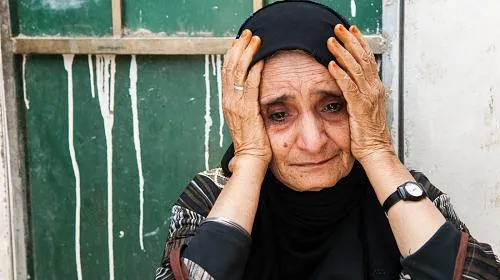SANA’A, Yemen (May 15, 2017) —The global poverty-fighting organization CARE is alarmed by the increase in reported cases and deaths resulting from a cholera and an acute watery diarrhea, or AWD outbreak in Yemen. According to the World Health Organization, 51 people are estimated to have died from over 2,500 suspected cholera cases in the country. CARE fears that the lack of a functioning health system and limited access to safe water and hygiene poses a threat to effectively controlling the spread of the disease.
“This cholera outbreak could not have come at a worse time. Millions of Yemenis are already facing multiple crises that threaten their survival,” says Wael Ibrahim, CARE Yemen’s country director.
Yemen is today one of the world’s greatest humanitarian crises. Close to 19 million people are in need of humanitarian assistance with over half of these lacking access to safe water and hygiene. An estimated 7 million people are nearing starvation. Less than half of Yemen’s health facilities are today functional as a result of the escalation in conflict over the last two years.
The cholera outbreak brings to light the important function that Yemen’s public service delivery institutions play in supporting access to services including health, water and sanitation. CARE believes that contributing to the alarming numbers of those affected by the outbreak is the inability of Yemen’s service delivery institutions to continue effectively functioning. The inconsistent provision of operational cost and payment of salaries of civil servants including health workers, has severely diminished health service delivery. Also affected are institutions and departments supporting water provision and garbage collection in Yemen.
The situation risks getting worse if urgent measures are not taken. CARE calls for an increase in efforts by all actors to prevent further infections and support the treatment of cholera cases. This will require increased access to affected populations and increased resourcing of the health, water and sanitation response in the country as well as support to Yemeni service delivery institutions.
CARE is providing support in preventing the spread of cholera in affected areas. This includes through the provision of safe water to public facilities like hospitals and schools; treatment of water; hygiene promotion and distribution of hygiene and cholera kits. Further, CARE is working with local communities in affected areas in supporting solid waste disposal through clean up campaigns in public spaces including markets.
About CARE
Founded in 1945, CARE is a leading humanitarian organization fighting global poverty. CARE has more than six decades of experience helping people prepare for disasters, providing lifesaving assistance when a crisis hits, and helping communities recover after the emergency has passed. CARE places special focus on women and children, who are often disproportionately affected by disasters. To learn more, visit www.care.org
Media Contact
Nicole Harris, nharris@care.org; 404-735-0871

